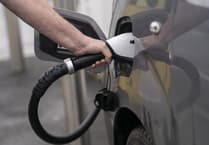IF you are lost it’s good to have a map with you. And it’s even better to have someone who can interpret it. On the day you read this the budget will be announced. But the UK’s problems go back years.
It’s time to be honest and analytical. Last Sunday on Laura Kuenssburg show, Jeremy Hunt said, ‘that the energy price hike was due to the Russian invasion.’ This is only partly true. The price increase is directly made by the markets, not suppliers; this week of all weeks we should all know that.
The lack of vision and long term planning has led the UK into a pit of worried and frustrated citizens. This is just a small list of what should have been dealt with three decades ago:
Having our own national energy company and not having our energy controlled by overseas companies and even governments; keeping our gas storage; some ten years back, having solar panels on new homes and existing offices and commercial building; starting to insulate the walls of older properties using incentive schemes; joined up planning new housing estates with hospital capacity in the area and limiting homes to ability to fully care; dealing with the wastefulness of too many middle management in the NHS, writing emails all the time and not being on the front battle-line taking the pressure off those who need help; building on top of bungalows which the elderly need and which makes no impact on the housing shortage, but just annoys the neighbours; the immigration crisis that can be solved just like the Australian’s, with strict send back policy if they are illegals, and now their problem has almost gone; acknowledging we can’t sort out the deep trouble we are in, by keep building on green fields in an already densely populated country and where wildlife is already very much in steep decline, and the loss can’t be mitigated away on a planner’s and landscaper’s drawing boards, as habit loss is a big part of the decline.
If governments both national and local do not learn lessons from the past and listen to the scientists and environmentalists; who predicated all the above, then the pit we have dug, will only get deeper and everyone including the wildlife will suffer with us.
Daniel Kahneman’s best-selling international book on thinking and economics titled, ‘Thinking Fast and Slow,’ Daniel is a Nobel Prize winner, states in his introduction on page 12, ‘The executive decision would today be described as an example of the affect heuristic, where judgments and decisions are guided directly by feelings of liking and disliking, with little deliberation or reasoning.’
This seems to be the way that most decisions are made without research and full analysis; no wonder we make so many wrong decisions.
I have been caught up with this myself just the other week, when I presented what I believed to be best practice to a council on rebuilding a certain part of an old building. It is my belief that the decision was made not to follow what I thought was best practice on reasons of climate change and durability, (the part they wanted to renew was not a historic part) but on likes and dislikes, as Daniel Kahneman refers to; ‘but not on analysis.’
We must stop living in the past, see what’s happening all around us and take the best scientific and honest approach – which may not always be the easy way, or we may be looking at a country getting poorer where humans and wildlife all suffer together.





Comments
This article has no comments yet. Be the first to leave a comment.